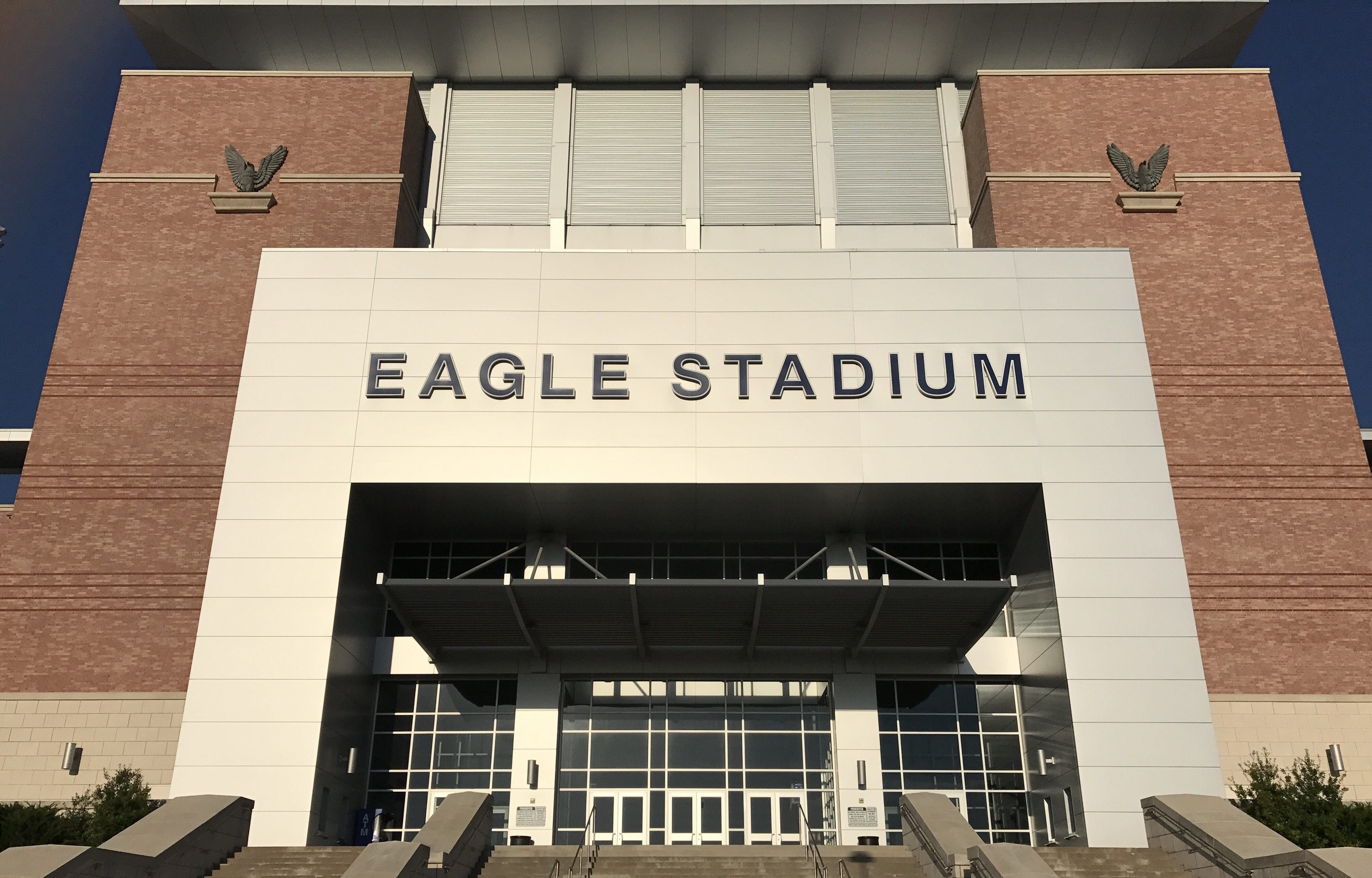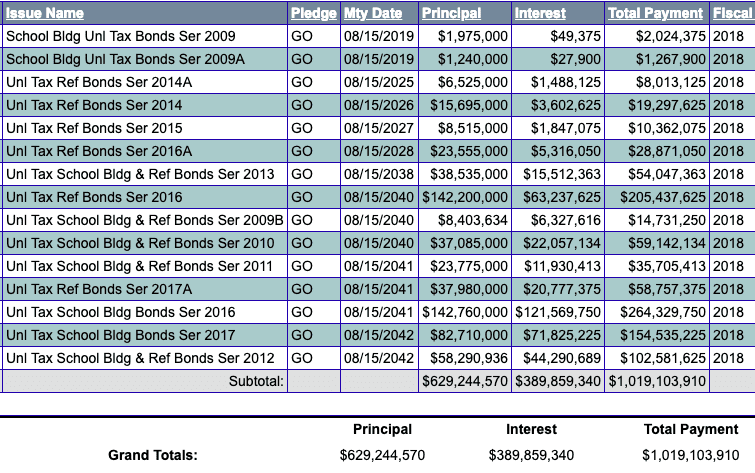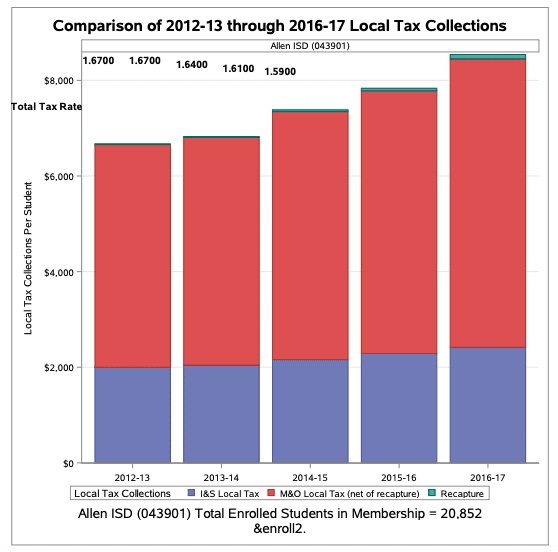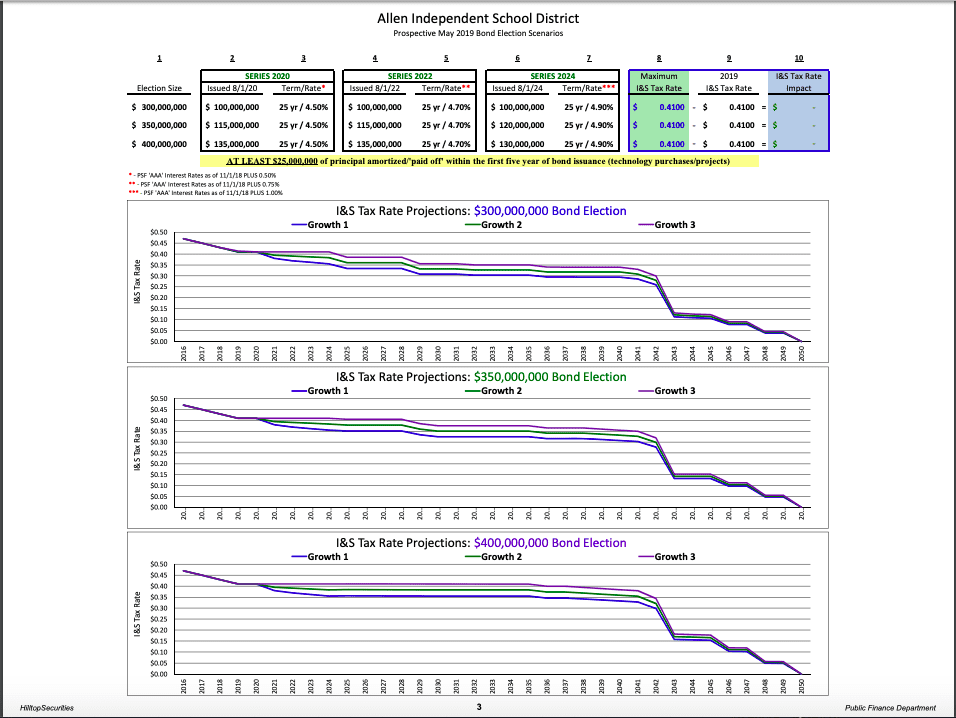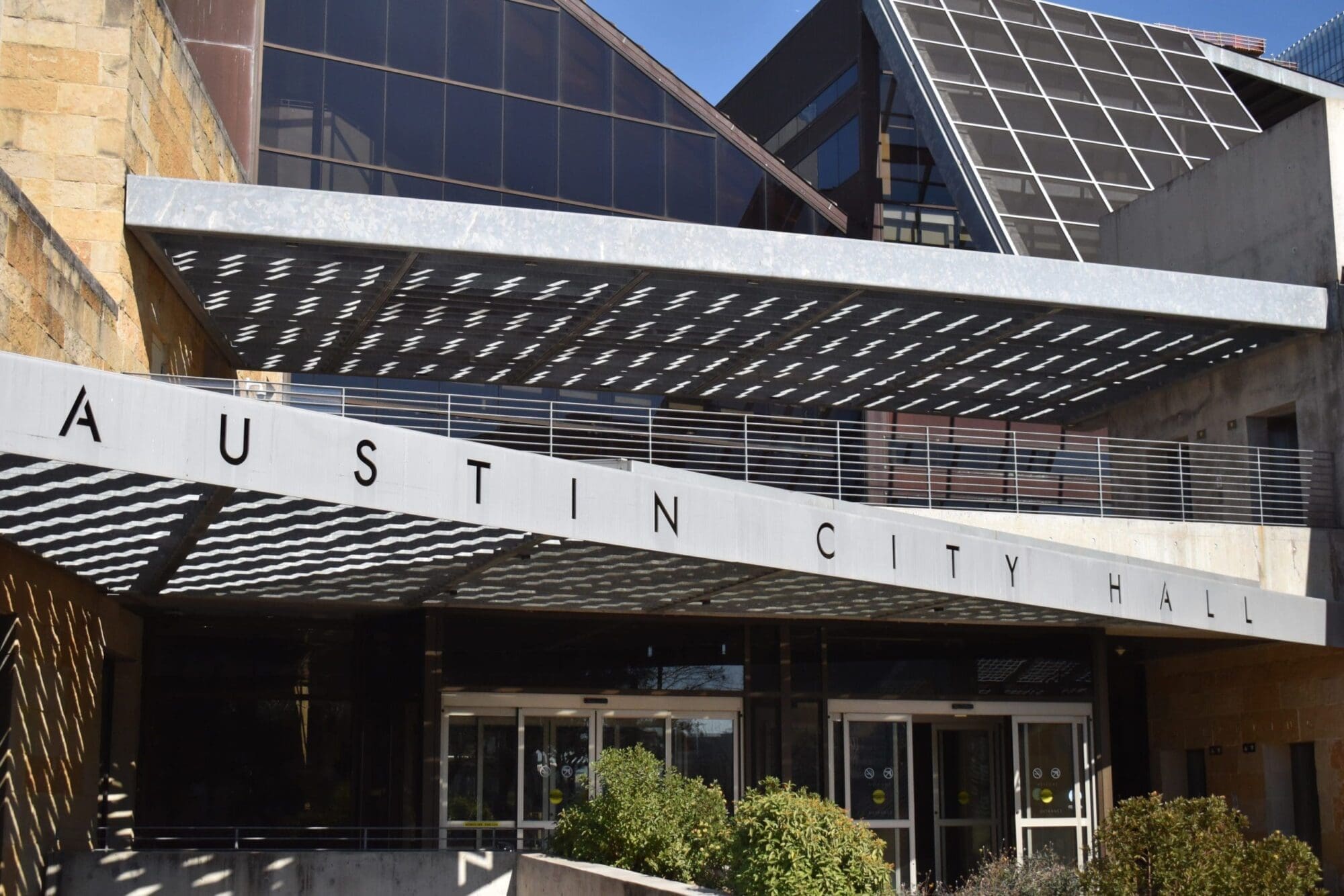Property taxpayers in Allen Independent School District—home of Texas’ first megamillion-dollar football stadium—have taken a beating the past several years thanks to the district’s runaway spending and debt. Now Allen’s school board wants voters to approve even more taxpayer-backed debt—a lot more.
Allen ISD trustees agreed to put a $422.8 million bond proposal on the May ballot at a special meeting on February 11.
The district already owes over $1 billion in bond debt principal and interest—more than $47,000 per student—all of which must be repaid with property taxes. If voters approve the new bond package, the district’s debt burden would increase by over 40 percent.
The district’s big spending has had a dramatic impact on local taxpayers. The average Allen ISD homeowner’s school property tax bill increased 23 percent from 2013 to 2016, to $4,517. During that same period, student enrollment grew by just 5 percent. From 2008 to 2016, school taxes increased 52 percent on average, while enrollment grew by 22 percent.
Residents’ tax burdens have continued to rise. Trustees lowered the district’s tax rate several times, but not enough to offset skyrocketing property values.
School officials say this new bond package will not increase the district’s debt service tax rate, currently set at $0.41 per $100 of property valuation; what they don’t say is that it will increase residents’ tax bills.
Instead of giving Allen taxpayers a needed break by lowering the district’s tax rate to offset rising values, trustees calculated the maximum amount they could borrow while keeping the current rate, then decided how to spend the anticipated tax revenue on a package of “school renovations, improvements, and upgrades” over the next five years.
The all-or-nothing bond proposition adds no new schools but includes:
- $11 million to build a replacement Agricultural Science Center
- $83 million for Allen High School renovations ($13 million for athletic facilities)
- $95 million to renovate two middle schools
- $126 million to renovate five elementary schools
- $25 million in athletic and administration building projects
- $60 million on technology ($30 million to “implement a mobile device purchase and replacement system to place more mobile devices in the hands of students and teachers”)
- $20 million for building maintenance, buses, and security upgrades
Project SOAR, a “citizens’ committee” formed by the AISD board to make spending recommendations, came up with the list of projects in the 2019 bond proposal which is larger than the district’s last two bonds combined.
In 2015, voters approved a $272 million bond package that financed $170 million in new construction (an elementary school, freshman center, and STEAM facility) plus upgrades and renovations to existing facilities. The Project Kids Committee, which included many of the same members as Project SOAR, promoted that bond.
AISD’s 2009 bond package allocated $119 million for the now-notorious $60 million Eagle Stadium, a $36 million bus barn/service center and $23 million auditorium.
Just a fraction of district voters participated in past bond elections: 7.8 percent (4,415 votes) in November 2015 and 8.8 percent in May 2009.
Two school board trustee positions were scheduled to be on the 2019 ballot along with the bond, but the district canceled those elections as the incumbents are unopposed. Trustees Amy Gnadt (Place 4) and Kelley Rowley (Place 5) will be automatically re-elected to three-year terms.
If the same voices continue to direct spending and borrowing in Allen ISD, residents will continue to face rising tax burdens. Taxpayers who want a break need to make their voices heard at the polls.
Early voting in the May 4 bond election runs April 22-30. The deadline to register to vote in the election is April 4.
